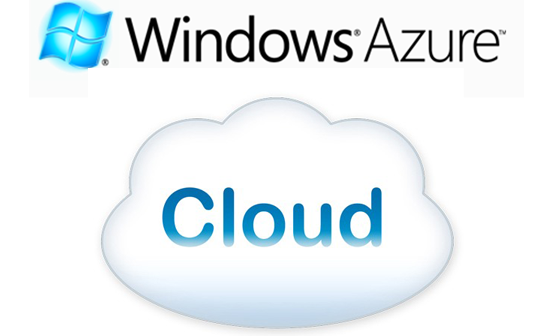Given the leaps the industry has made in the last five years, from the first open-source cloud platforms for tech companies to consumer-level products like Google’s Chromebook, it’d be obviously and almost patronisingly insulting to talk about how key a component cloud computing is, and will continue to be, for everyone from SMEs to blue-chip companies.
The way the industry is booming, and is predicted to boom even further, can’t be ignored or understated – with the global cloud market expected to grow to over $241 billion by 2020, six times higher than its $40 billion worth in 2011, it will undoubtedly become an undeniable backbone for virtually all business, from the SME to the blue-chip.
With more and more cloud-based products available, from public cloud hosting with Amazon’s S3 to bespoke private products, Microsoft trots onto the market proudly displaying its Azure platform – a cloud product with the ability to offer a bit of both. But will it shake up the industry and claim the cloud crown, or disappear in a sea of well-established platforms?
Against: Private Clouds Are Unnecessary
Amazon are chiefly at the forefront of this idea, championing their increasingly successful, and industry-revered, cloud product known only as ‘S3’ (no relation, Samsung fans). Cynics might point to Amazon’s vested interest in deterring business from private cloud products in favour of public ones, but the truth is that Amazon has a great track record with their own public S3 platform.
The benefits, they say, of such a setup are further cost-reducing capabilities, better scalability and a lower cost of operation – features they argue that bespoke private cloud hosting options, such as Microsoft’s Azure platform, simply don’t provide. Amazon claims that, even for a lot of blue-chip companies, private cloud hosting is an unnecessary expense, and no better a choice than physical in-house servers.
Amazon have shown itself to offer an incredibly usable product – 2012’s whitepaper from American hosting company Nasuni put Amazon’s S3 product ahead of the likes of Google, HP and Rackspace (though this year’s cloud whitepaper offers some different results!).
Of course, Amazon points to its own product as the proof behind its lambasting of private cloud hosting – but critics have said that companies like Amazon are able to greatly reduce their costs based on the sheer size of their organisation, with no real relation to public vs. private clouds.
But the results don’t lie – Amazon have created a great cloud computing product, so their industry insight is incredibly valid. Even though they lost the Nasuni top spot this year, their S3 product is among the best public cloud platforms available.
For: Private Clouds Offer Greater Security & Flexibility
While there’s truth in the overall structural simplicity and running cost reductions associated with public cloud-based products, what many companies need is a flexible and customisable product, which is something that comes with private cloud infrastructure.
While public cloud computing offers a consistent (and therefore, some would say, scalable) product, what private cloud can offer is extremely difficult to measure – essentially because it can offer whatever hosting or server network that your organisation requires. This makes it difficult to compare against a like-for-like product, but does mean that businesses are able to choose their package and transform it in-house (or courtesy of a hosting company).
This is really important for companies working in sensitive industries, like security or law, as flexibility is really key to ensuring the right product and the right security – assurances which, perhaps, public doesn’t necessarily afford.
Ultimately, flexibility is one of cloud computing’s greatest assets, and lack of this is what has made many businesses jump to the cloud. To then be told that everyone must use, essentially, the same product is unnecessarily self-stifling of the industry – different products work for different companies so, while some may suit a public cloud based setup, others may require the overall flexibility of a private product.
But what of Microsoft’s Azure platform – the focus for this whole post? The topical segue for this is that, in the cloud whitepaper mentioned earlier, Azure achieved the #1 spot above the likes of Amazon and Google’s platforms. Additionally, as it offers both private and public options, it could well be able to cater to all areas of business-based cloud computing – the potential is there, and we’ll just have to see how it evolves from here.
Â
This guest post was written by Tom McShane – business blogger, technology addict and writer for UK-based cloud server and hosted exchange company Giacom. Tom’s excited with the way the cloud hosting industry is progressing, and how fast it’s doing it – but is remaining on the fence in the Microsoft vs. Amazon cloud tech war.




